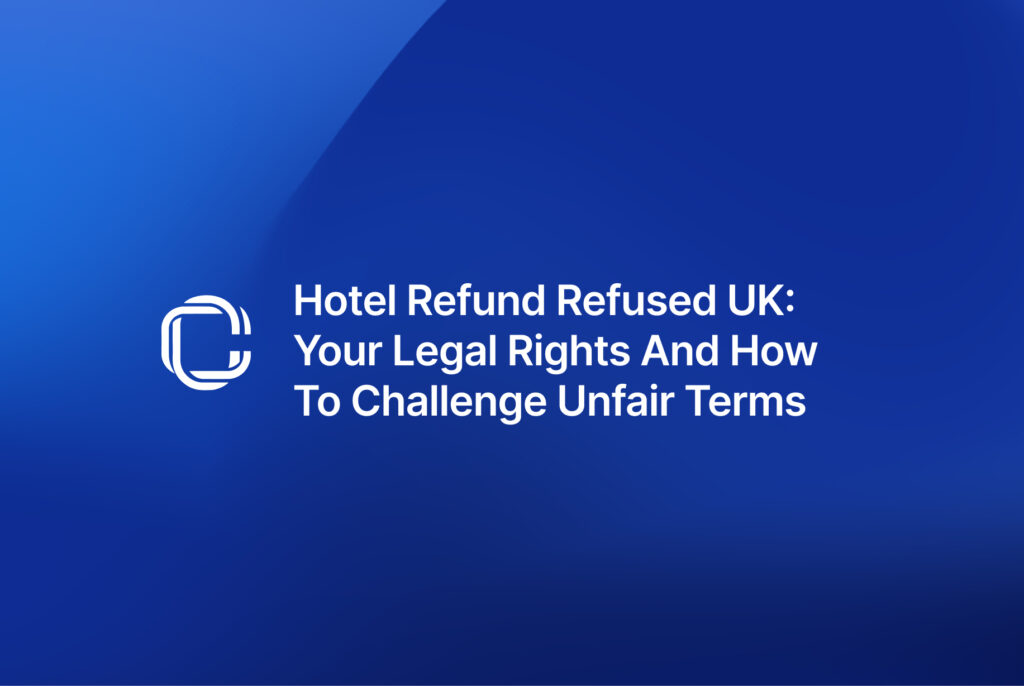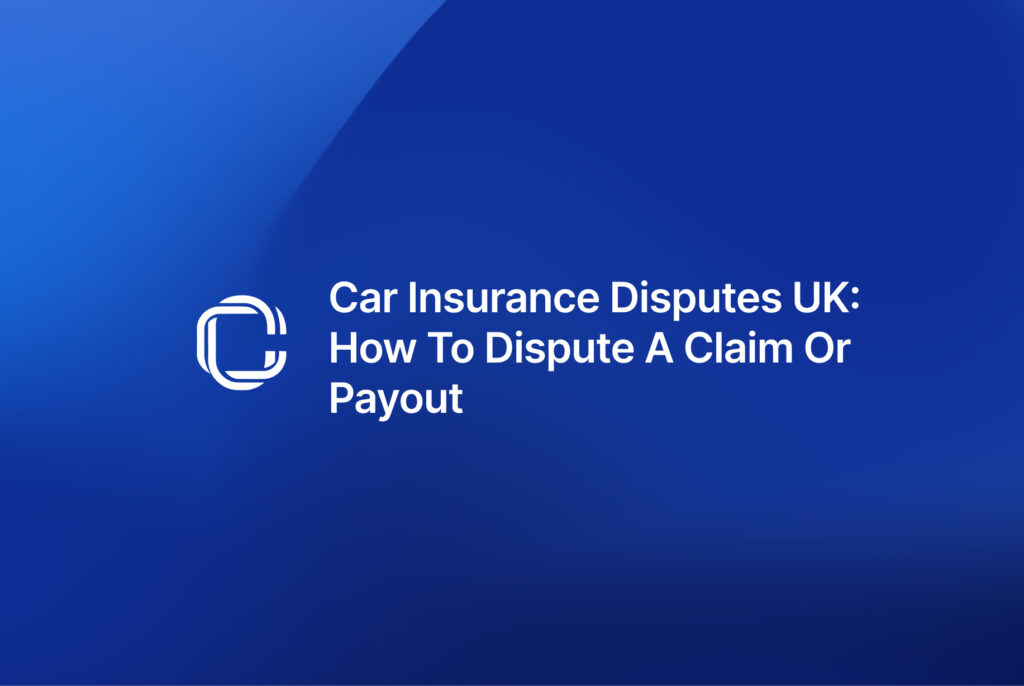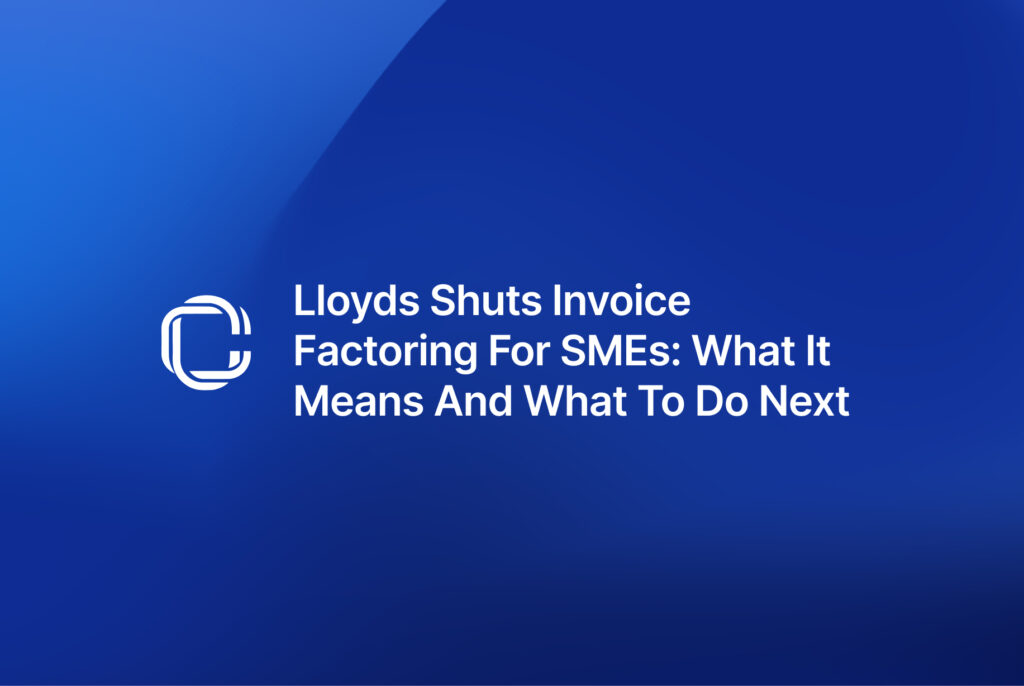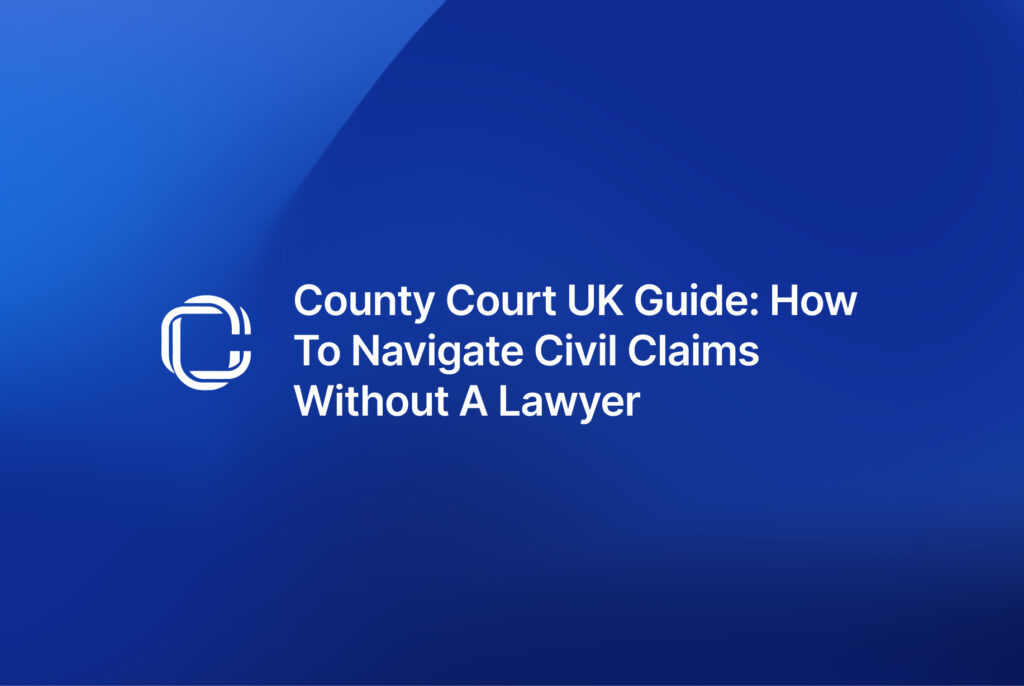Learn how to prove a verbal agreement in the UK small claims court, what counts as evidence, how to strengthen your case, and examples.
Even without a paper trail, a verbal contract can be enforceable in the UK. To win a verbal agreement small claims case, you must prove there was a valid contract (offer, acceptance, consideration and an intention to create legal relations) and show convincing oral contract evidence in the UK. Emails, text messages, payment records and witness statements are crucial; judges decide on the balance of probabilities, weighing credibility and consistency. Collect evidence promptly, send a letter before action and organise your documents before filing. CaseCraft.AI simplifies this process by generating the right forms, guiding you through the Civil Procedure Rules and charging only a small fee if you win.
Introduction
Imagine you have a conversation over the phone with a personal trainer about renewing your gym membership. You agree on price and commitment, shake hands metaphorically and carry on with your day. A few months later, the gym denies the deal and refuses to honour the rate you discussed. “It’s your word against ours,” they say. That sinking feeling is why understanding how to prove verbal agreement in court matters.
In 2025, British law still recognises that a spoken promise can be just as binding as a written contract. Under English contract law, an agreement becomes enforceable when it contains four elements: offer, acceptance, consideration and an intention to create legal relations. These elements can be expressed verbally; indeed, HMRC’s internal manual notes that an offer and acceptance “may be written, oral or implied”. The challenge is not legality but proof. Without a document to refer to, claimants must assemble a persuasive package of verbal contract proof UK, messages, payment records, witnesses and conduct, to satisfy a judge on the balance of probabilities.
This comprehensive guide explains how verbal agreements in small claims cases are decided, what types of evidence courts accept, and how to prepare your case. It also shows how CaseCraft.AI streamlines the process. Whether your dispute concerns a subscription renewal, freelance work or a “gentleman’s agreement,” this article will help you build a winning claim while keeping the tone clear, human and professional.
Are Verbal Contracts Legally Binding in the UK?
The Legal Basis
Contrary to the old adage that a verbal promise “isn’t worth the paper it’s written on,” English law does enforce oral agreements when the contractual ingredients are present. HMRC guidance confirms that a contract consists of an offer and an acceptance, and both “may be written, oral, implied or a combination of these”. For a contract to be valid, there must also be consideration (something of value exchanged) and an intention to create legal relations. Without these pillars, a court will not enforce a verbal agreement.
Law firm guides echo this approach: Harper James Solicitors note that verbal agreements are legally binding but can be hard to prove. Sprintlaw adds that the substance of the parties’ words, offer, acceptance, consideration and intention, matters more than whether the agreement is in writing. Some exceptions remain: contracts for the sale of land, consumer credit agreements and guarantees must be in writing. In most everyday dealings, however, a spoken promise can create binding obligations.
The Four Essentials
Offer: One party proposes terms capable of acceptance.
Acceptance: The other party accepts the offer without modification (“I agree to those terms”). Attempting to change the terms is a counteroffer.
Consideration: Each side gives something of value, money, goods or services.
Intention to create legal relations: The parties must intend to enter a legally enforceable agreement. In business contexts, courts often presume this intention, but social promises rarely meet the test.
These essentials underpin both written and spoken contracts. Without them, there is no contract to enforce.
Why Proof Matters
While the legal framework treats oral and written contracts similarly, evidence is far easier to gather when there is a document. Difficulty with verbal contracts lies not in their enforceability but in proving they exist and establishing their terms. To overcome this hurdle, claimants must assemble convincing evidence that an agreement was reached and performed.
CaseCraft.AI is built for this challenge: its platform generates legal forms, helps organise evidence and guides users through the small claims process. It ensures your claim meets HM Courts & Tribunals Service requirements and charges only a £15 processing fee plus a 10% success fee if you win.
Common Examples of Verbal Agreements That Lead to Disputes
Many modern transactions are sealed with a handshake or a phone call. Below are typical situations where verbal vs written contract UK questions arise:
- Subscription renewals: Gym memberships, streaming services or software licences are often renewed verbally over the phone. Disputes arise when a business denies the renewal terms or continues billing after a cancellation.
- Service agreements: Freelancers, consultants and tradespeople frequently agree on scope and price via conversation or messaging. Without a written contract, disagreements over deliverables or payment terms are common.
- Freelance or consultancy work: A designer might agree to produce a logo for a small business for a certain fee. The work is done, but the client claims there was no agreement or that the price was different.
- Verbal extensions or modifications: Parties sometimes amend existing contracts orally, such as extending a lease by a few months or agreeing to extra services. Unless recorded in writing, such variations can be disputed later.
These examples fall within the small claims track when the claim value is under £10,000. CaseCraft.AI is designed to handle disputes within this limit and can guide users toward other legal routes for higher-value claims.
What Counts as Evidence of a Verbal Contract
A judge will not take your word alone; they need evidence that a contract existed and what its terms were. Collecting proven verbal contract evidence early improves your chances of success. Here is what counts:
Written Communications Supporting the Agreement
Emails, WhatsApp messages, texts and letters referencing the agreement are powerful. Harper James lists correspondence, emails, text messages and letters referring to the agreement, as “vital in proving its existence”. For instance, an email saying “Thanks for agreeing to renew my subscription, I’ll pay £50 monthly” can corroborate the terms. Even informal platforms matter: in a 2025 Technology and Construction Court case (Jaevee Homes Ltd v Fincham), the judge held that an exchange of WhatsApp messages “evidenced and constituted a concluded contract”. The court accepted the messages because they showed offer, acceptance and intention despite the informal medium. Screenshots of messages with timestamps, call logs and follow‑up emails all help support your narrative.
Proof of Payment or Performance
Evidence that the contract was performed strengthens your case. Bank statements showing payments or delivery notes confirming goods or services were supplied can be “strong evidence that a contract exists”. For example, if you paid a builder after agreeing on a price verbally, the payment record demonstrates consideration and performance. Keep receipts, invoices and proof of transfer.
Witness Statements
Witnesses who heard the agreement being made or can testify about your conduct are invaluable. Your own statement plus any third‑party evidence “is crucial in establishing how and where the contract was made”. The Civil Procedure Rules specify how witness statements must be structured: they should start with the case name and claim number, state the witness’s full name and address, set out the evidence in numbered paragraphs on numbered pages, end with the statement “I believe that the facts stated in this witness statement are true,” and be signed and dated.
Conduct of the Parties
Courts look at whether both sides behaved as if a contract existed. If services were delivered and payments were made without protest, that conduct suggests an agreement. Evidence such as call logs, delivery receipts, or emails coordinating work schedules demonstrates that the parties acted on their verbal understanding.
Recordings (Use with Caution)
It is generally lawful in England and Wales to record a conversation you are part of without informing the other party, provided it is for personal use. Harper James notes that courts may accept such recordings as evidence but will consider how they were obtained and their reliability. Secret recordings are admissible but may carry less weight, so seek legal advice before relying on them.
Proof Checklist
- Messages or emails confirming terms (texts, WhatsApp, emails).
- Payment records: bank transfers, invoices, receipts.
- Witness statements in the prescribed format.
- Evidence of performance: delivery notes, call logs, work schedules.
- A written summary of what was agreed (sent soon after the conversation).
Collect these items as soon as a dispute arises, memories fade, and messages get deleted. CaseCraft.AI helps you compile and upload your evidence so that it’s organised when you file your claim.
How to Strengthen Your Case Before Filing
Winning a verbal contract proof UK case often depends on preparation. Small claims courts expect parties to try to resolve disputes before filing and to follow the pre‑action protocol.
Gather All Supporting Evidence Early
Don’t wait until the court asks for documents. Collect emails, screenshots, payment proofs, and relevant correspondence as soon as you sense a dispute. “The more evidence you can gather, the stronger your position will be”. Create a timeline of events and store everything in one place.
Send a Written Summary of the Agreement
After agreeing orally, send an email or message to the other party summarising the key terms: what was promised, the price, and the date. This follow‑up not only clarifies any misunderstandings but also creates written evidence. Even if the other side does not respond, your summary shows that you understood the agreement and gives them an opportunity to correct any mistakes. Courts often accept such written follow‑ups as corroboration of a verbal contract.
Send a Letter Before Action (LBA)
Under the Civil Procedure Rules, parties should send a formal letter before a claim, giving the other side a final chance to settle. Citizens Advice recommends writing “Letter before claim” at the start, explaining what happened, what you want, how much you’re claiming, and the deadline for reply (usually 14 days, but up to 30 days may be required for debt claims involving individuals or sole traders), and warning that you will start court proceedings if there is no response. The letter should also refer to the Practice Direction on pre‑action conduct and state that failure to comply may result in sanctions. Lawhive’s guidance on LBAs highlights the same points and notes that sending a well‑structured letter increases your chances of settling without court. Keep proof of postage or delivery.
Consider Mediation or Settlement
Courts encourage parties to explore settlement. Citizens Advice suggests offering mediation in your letter before the claim. Mediation can resolve disputes quickly and cheaply; if it fails, you still have the option of court.
Check Your Claim Value and Suitability
The small claims track is usually for disputes up to £10,000. Ensure your claim falls within this limit. CaseCraft.AI is optimised for small claims and will redirect you to appropriate resources if your claim is over the limit.
Use CaseCraft.AI’s Tools
CaseCraft.AI simplifies this preparation. It auto‑generates the correct legal forms, helps you draft pre‑action letters and organises your evidence. The platform guides you through each step and tracks deadlines, so you avoid costly mistakes. There’s a fixed £15 setup fee and a 10% success fee only if you win.
How to Present Verbal Contract Evidence in Small Claims Court
Once you’re ready to file, you need to present your case clearly and persuasively. Small claims hearings are informal compared to other courts: judges typically sit in a room rather than a formal courtroom, and wigs and gowns are absent. Nevertheless, preparation and organisation matter.
Organise Documents by Relevance
Follow a logical order: start with messages or emails showing the agreement, then present proof of payment, proof of performance and witness statements. Under Practice Direction 27A, standard directions require each party to file and serve copies of all documents they intend to rely on at least 14 days before the final hearing. Failing to follow directions may result in extra costs or dismissal of your claim.
Explain the Timeline Clearly
Prepare a chronological narrative. Explain when the agreement was made, what was promised, when payments were made or services delivered, and when the dispute arose. Refer to your evidence as you go. Judges appreciate concise, factual stories; avoid over‑explaining or venting frustration.
Avoid Over‑Explaining or Emotional Arguments
Small claims judges focus on whether there was a contract and what its terms were. Emotional arguments about how stressful the situation was won’t help. Stick to the facts and the evidence. If you’re unsure how to present your claim, CaseCraft.AI provides templates and guidance on structuring your narrative.
Comply With Court Directions
Read the court’s directions carefully. You will receive at least 21 days’ notice of the final hearing. Provide documents in the required format and send copies to the defendant and the court. Failing to send documents properly may lead to extra costs or the inability to call your witness. If you cannot attend the hearing, use Form N244 to ask for a new date.
How to Use Witness Evidence
Although most small claims are decided without witnesses, their testimony can tip the balance. When a witness is needed, their statement must follow the rules: include the case name and number, full name and address, numbered paragraphs, the truth statement and signature. You may be asked to exchange witness statements with the other side before the hearing; the judge will consider whether it is necessary, taking into account representation, the amount in dispute and the need to avoid formality. Cross‑examination is limited in small claims; the judge may ask questions first and restrict the time for questioning.

How Judges Evaluate Verbal Agreements
Balance of Probabilities
In civil cases, including small claims, the standard of proof is the balance of probabilities. Lawhive explains that a fact is considered proven if it is more likely to be true than not. Judges weigh evidence, credibility and consistency to decide whose account is more plausible. They also consider witness reliability, the strength of documentary evidence and whether the evidence is relevant. This standard is lower than the criminal “beyond a reasonable doubt” threshold and means you don’t need absolute certainty, just enough to tip the scales.
Credibility and Consistency
Judges look for a coherent story supported by evidence. If your timeline, messages and payment records align, your case is stronger. Conversely, contradictions or missing evidence can undermine your credibility. Conduct matters too: if you acted as though the contract existed, making payments, delivering services, this supports your version.
Corroboration
Corroboration from independent witnesses or documents carries weight. The HMRC manual notes that establishing the true terms of an oral contract requires interviewing the parties and reviewing relevant correspondence and invoices. Courts prefer objective evidence over competing memories.
Case Law Example: Jaevee Homes Ltd v Fincham
In 2025, the Technology and Construction Court considered whether WhatsApp messages created a binding contract. The judge concluded that the exchange of messages “evidenced and constituted a concluded contract”. Even though there was no formal written document, the messages showed a clear offer, acceptance and intention to create legal relations. This case illustrates that modern digital communications can satisfy the requirements of a contract and be persuasive evidence in court.
Exceptions Requiring Written Contracts
Some agreements must be in writing to be enforceable. These include contracts for the sale or transfer of land, consumer credit agreements and guarantees. If your dispute involves these, you will not succeed in small claims without a written document. Always check whether your contract type falls into an exception.
What Happens If the Other Party Denies the Agreement
When the defendant denies making the agreement, the burden remains on you to prove that a contract exists. А common problem with verbal contracts is that the other party “may deny having made the agreement”. In such cases:
- Stick to Your Story: Keep your narrative consistent across documents, messages and witness statements. Inconsistencies can be exploited by the defendant.
- Present Objective Evidence: Use correspondence, payment records and witness testimony to corroborate your account. The court will pay more attention to independent documents than to contested recollections.
- Address the Defendant’s Defence: If the defendant alleges different terms or claims the promise was conditional, explain why their version is improbable. Highlight any admissions or conduct that contradict their position.
- Continue Trying to Settle: Even after filing, you can negotiate or mediate. CaseCraft.AI helps draft structured settlement offers and pre‑action letters, potentially resolving disputes without court.
Disclaimer: This article is for general informational purposes only and does not constitute legal advice. Always seek professional legal guidance before taking action on your specific case.
FAQs About Proving a Verbal Contract
Can you sue someone with only a verbal agreement?
Yes. Verbal agreement, small claims are permitted in England and Wales if you can prove that a contract exists and what its terms were. The HMRC manual confirms that contracts can be formed by oral offer and acceptance. You must show evidence, messages, payments, and witnesses so that the court is satisfied on the balance of probabilities.
What evidence is best for proving a verbal contract?
The strongest evidence combines written communications (emails, texts, WhatsApp messages), proof of payment or performance (bank statements, invoices), and witness statements formatted correctly. Recordings may help, but courts scrutinise how they were obtained. A written summary sent after the agreement also supports your case.
Do witnesses count in small claims court?
Yes. Witness evidence can corroborate your account. Witness statements must include the witness’s full name and address, set out their evidence in numbered paragraphs, end with a declaration of truth and be signed and dated. The court may limit cross‑examination in small claims hearings, so concise statements are important.
Can texts or WhatsApp messages prove a contract?
Absolutely. Courts increasingly accept digital messages as evidence of contracts. In Jaevee Homes Ltd v Fincham (2025), the judge ruled that an exchange of WhatsApp messages constituted a concluded contract. Such messages must show offer, acceptance and intention. Screenshots with timestamps strengthen your case.
What if both parties remember the deal differently?
When memories conflict, the court looks to objective evidence. Send a written summary of the agreement immediately after the conversation to establish the terms. Collect emails, payment records and witness statements. Ultimately, the judge will decide whose account is more likely on the balance of probabilities.
How long do you have to bring a verbal contract claim?














